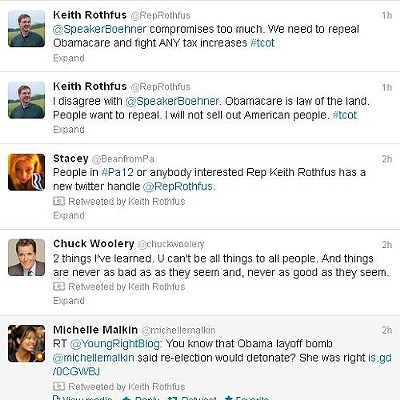Saturday, November 10, 2012
When newspapers have no comment
At the Post-Gazette, the comments section sometimes gets TOO active
Here's the thing about online comments: Some newspapers don't get as many as they'd like. Others, like the Pittsburgh Post-Gazette, sometimes get more than they bargained for.
Since enabling comments site-wide this past spring, the P-G gets a lot more comments than your humble City Paper (not to mention its crosstown rival, the Tribune-Review). But as many readers have noticed, a notable chunk of those comments appear to be written by, well, total assholes. To the point that the paper has taken to preemptively banning comments on the stories most likely to spawn ugly debates.
I'm not going to provide links, because the worst offenders have often been removed. And at this point in human history, I don't think anyone needs evidence of the existence of trolls. But suffice it to say that after some bitter experiences, says executive editor David Shribman, "We have disabled comments from stories on topics that we know within 40 seconds will degenerate into ugliness."
Mary Leonard, the paper's deputy managing editor and overseer of its digital media platform, says there's a roster of topics on which commenting is preemptively disabled. "We routinely disable comments on all stories about rape, most stories about violent crime, generally obituaries, and always [convicted child molester Jerry] Sandusky and Jordan Miles" -- the Homewood teen who has sued the city over allegations of police brutality.
The P-G was wary of reader comments from the outset. Although comments have long been enabled for blogs, it wasn't until this year that the paper began permitting comments on its regular content. Shribman confirms he and other executives were concerned about the ugliness so often found in other newspaper comments sections.
"Journalism is no longer a one-way street where we give our pronouncements to a grateful audience," he says. "Engagement is an important part of this new world, and we want to embrace that. But one of things I insist we [maintain] is a sense of civility and comity. With the exception of commentary on the Pirates infield and the Steelers secondary, we’d just as soon as not have a food fight."
The P-G, like other media outlets, handles comments through Facebook. Among other reasons, Leonard says, the paper hoped that readers would be on their best behavior if their words were attached to an online persona. The anonymity many websites provide is a suspected cause of "online disinhibition effect" -- in layman's terms, the tendency for people to be assholes on the web. And other papers have reported seeing a more elevated dialogue when comments were associated with Facebook accounts.
But other studies suggest such policies have less impact than you might think. One Carnegie Mellon University study, for example, found that while using real names improves dialogue overall, it does little to dissuade hardcore trolls.
The P-G's experience, not surprisingly, has been a mixed bag as well -- and some stories seem to attract more trolls than others. "We sort of know what kind of stories are going to go south," Leonard says. "You have to keep an eye on stories that turn racial." Still, she adds, "The truly crazy stuff takes you by surprise ... For example, the commenting on the first story on the Ten Commandments monument in Connellsville went off the rails very quickly. So we disabled comments on follow-up stories." Stories about bikes and cars also bring passions to a boil, and "Voter ID was huge. Everybody had an opinion on that."
As for sports, the Penguins stories tend to attract "the rowdiest" comments, says Leonard -- perhaps because the fanbase skews younger. And while there's an active Pirates readership, long-suffering baseball fans are less consumed with rage than you might expect: After two decades of on-field futility, Leonard jokingly surmises, commenters "may be taking their Prozac.")
Leonard says that overall, commenting has "exceeded our expectations. The number of comments has been growing every month. I think we have about 170,000, and that’s not including comments on our blogs -- just on the articles." Even the comments that turn ugly sometimes serve a purpose, she says: "You realize the nerves some stories touch, and that can shape your coverage."
Still, running a comments section adds to the workload of already-stressed staff.
Leonard says staffers take shifts, usually about an hour per day during the work week, longer on the weekends. During her usual 5-to-6 p.m. shift, Leonard says, "I may take down about 4 comments out of 100." (Comments go live immediately, and may be pulled after the fact. "We don't have the time to pre-moderate," she says.) And because Facebook's filters are highly sensitive -- flagging comments about real-estate assessments for obscenity, for example -- "I probably spend more time restoring comments than removing them."
Online comments came up during a Podcamp panel discussion I participated in last month. During that session, Post-Gazette columnist Tony Norman said -- and others in the newsroom have confirmed -- that the selective comment policy has generated some tension, especially among free-speech absolutists who think readers should be able to see the good, the bad, and the ugly for themselves. Leonard said she hadn't heard such objections herself. "But if I did, I would say, 'Here, take an hour of moderating.'"










